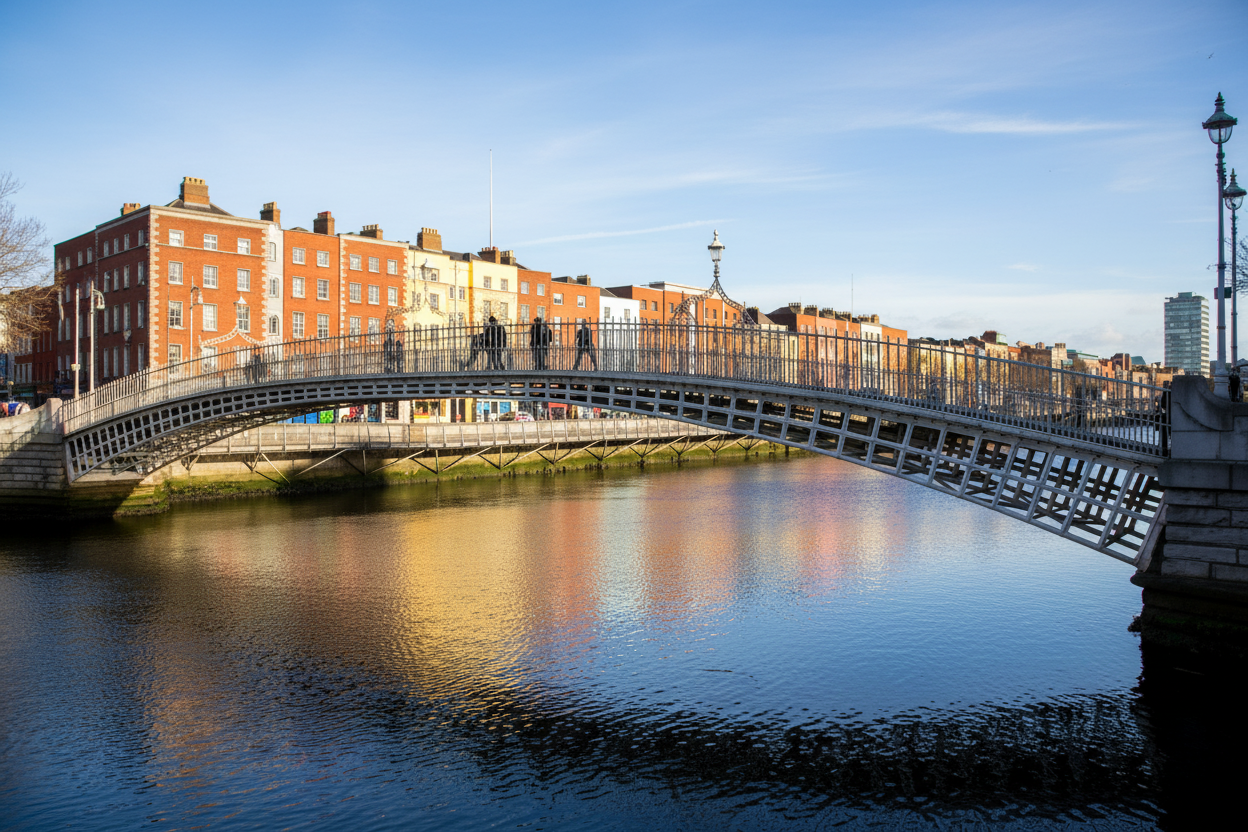
NomadÉire in Ireland: A Digital Nomad’s Guide to the Festival, Community, and Living in Dublin
Introduction: What is NomadÉire and why it matters
NomadÉire is Ireland’s powered-by-the-community gathering that combines the global digital nomad movement with Irish culture, rural regeneration, and practical remote-work know-how. First launched in 2023 in rugged County Kerry, it has since evolved into a week-long immersive experience. Folks come for more than just talks—they stay for outdoor adventures, cultural immersion, and evening socials that knit together work, place, and community.
The 2025 edition builds on that DNA, but with even more structure, intention, and flair and will take place in Dublin’s centre.

History and evolution - what previous editions were like
2023 (Tralee, County Kerry): Four-day kickoff featuring international speakers, pragmatic workshops (visas, tax basics, freelancing setups), wellness, and active countryside excursions.
2024 (Donegal): Expanded into a full festival format blending conference tracks with Gaeltacht culture, music, and community engagement. From morning how-tos to afternoon adventures to evening trad sessions—the template was set.
What's new in 2025—edition highlights
Extended duration: 7-day immersive week (13–20 Sept), including optional festival ambience before and after the conference proper
Conference core: City centre locations in D1, D2 & D7 (venue details sent to attendees)
Structured daily rhythm:
Mornings: Education—panels, talks, workshops on remote business, nomad lifestyle, wellbeing, content creation, Irish culture, and innovation.
Afternoons: Outdoor adventures—guided hikes, eco-tourism, boat trips, beach excursions, surfing, kayaking, hands-on Irish traditions.
Evenings: Community and culture—socials, live music, networking
Special features: Startup pitching competition, hands-on workshops with digital nomads and entrepreneurs, cultural integration sessions, and “unconference” spaces for peer-led engagement
Ticketing: A week-long pass is €139, which includes all conference events, workshops, outdoor excursions (with transport), and evening social programming. Accommodation and travel are extra; early birds booking before 1 June gain exclusive perks like a conference kit
How NomadÉire connects to Dublin’s nomad ecosystem
Although the festival itself has chosen rural locations in recent years, the connections it fosters are important for Dublin-based nomads. Dublin remains Ireland’s economic and tech hub — the Docklands ("Silicon Docks") are home to major tech offices and make the city a networking hotspot. Coworking and incubator spaces such as Dogpatch Labs and established creative hubs provide places to meet other remote professionals, test products, and plug into Ireland’s startup scene. For nomads in Dublin, NomadÉire can act as a bridge from city networks to regional work‑and‑stay opportunities, and a landing pad for freelancers who want to explore Irish markets or build a portfolio of local collaborations.
Neighborhoods, coworking, cafés and where nomads actually work in Dublin
Dublin’s most nomad‑friendly areas include the Docklands for waterfront convenience and proximity to tech events, Stoneybatter for its village vibe and café scene, and Portobello/Grand Canal area if you want quieter residential streets close to central amenities. Each neighborhood offers a different rhythm: Docklands is efficient and modern, Stoneybatter is community‑driven and cozy, Portobello is canal‑side and settled. If you need desks and community, look at The Tara Building for creative, member‑driven coworking and Dogpatch Labs for startup energy and mentor networks; both regularly host meetups, bootcamps and evening socials that complement what NomadÉire offers in the regions. For day‑to‑day work you’ll find reliable cafés in Smithfield, Phibsborough and the south city near Portobello where good coffee and Wi‑Fi meet steady plug sockets.
Nightlife, music and food — the social side NomadÉire leans into
A core appeal of NomadÉire is pairing professional development with Irish culture: live music sessions, trad nights, and pub‑based networking are common. Dublin’s nightlife stretches from the tourist‑heavy Temple Bar to more local music venues in Camden Street, Smithfield and the Docklands. Food scenes in Dublin now range widely — modern Irish plates, strong Middle Eastern and Asian offerings, and an exploding café culture for daytime meetings. For a nomad, a typical evening after a NomadÉire learning day might be a community dinner with local producers followed by a trad session or a live set at a local venue — exactly the kind of cultural exchange the festival aims to catalyze. (If you want quieter nights, Stoneybatter and Portobello both have bars and small gigs that won’t exhaust your voice the next morning.)
Practical tips: tickets, travel logistics, safety and cost (updated)
Dates & tickets: Full 7-day pass: €139, covering nearly everything except lodging and travel. Early booking (before 1 June) yields extra perks like a conference kit. You can book it here.
How to make the most of NomadÉire — a quick checklist
Book a coworking day in Dublin before you travel — use it to meet locals and test your kit (power adapters, VPN, call quality).
Volunteer or apply to speak — festivals are community‑driven and volunteering unlocks behind‑the‑scenes connections.
Mix education with exploration — schedule client hours in the morning, hikes or cultural tours in the afternoon.
Bring layers and waterproof gear — Donegal and Kerry weather can change fast, even in September.
Network with intent — NomadÉire attendees are often collaborators, not just fellow travelers.
Final thoughts — who should go and what you’ll leave with
NomadÉire suits a wide range of people: freelancers testing rural work options, founders scouting Irish markets, content creators after unique landscapes, and any nomad who wants a stronger sense of community. You’ll leave with practical skills (tax and business pointers, remote workflows), new collaborators, and a shortlist of Irish places worth returning to. For Dublin nomads in particular, the festival is an invitation: expand beyond the city’s tech hub, plug into Ireland’s regional culture, and take advantage of the country’s infrastructure and startup energy to turn transient trips into sustainable creative and business practice. If you plan to attend a future edition, keep an eye on official NomadÉire channels and buy early — these regional gatherings sell out as soon as they announce dates.